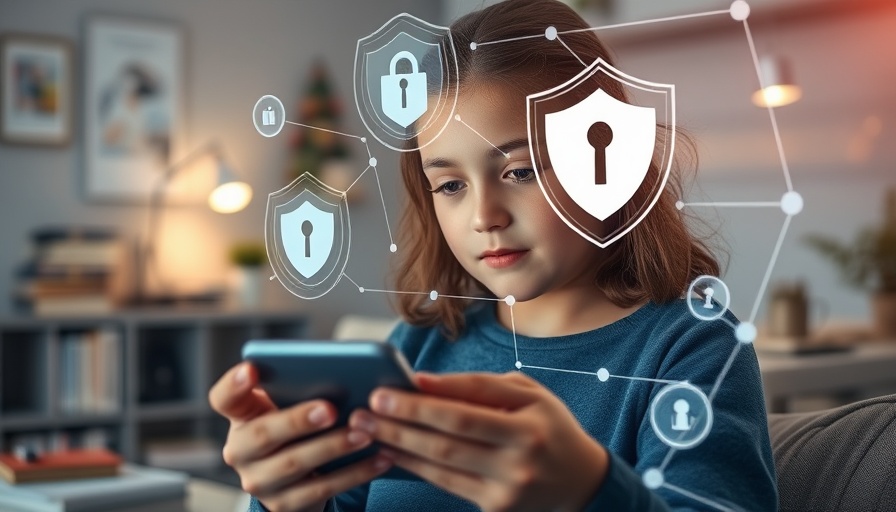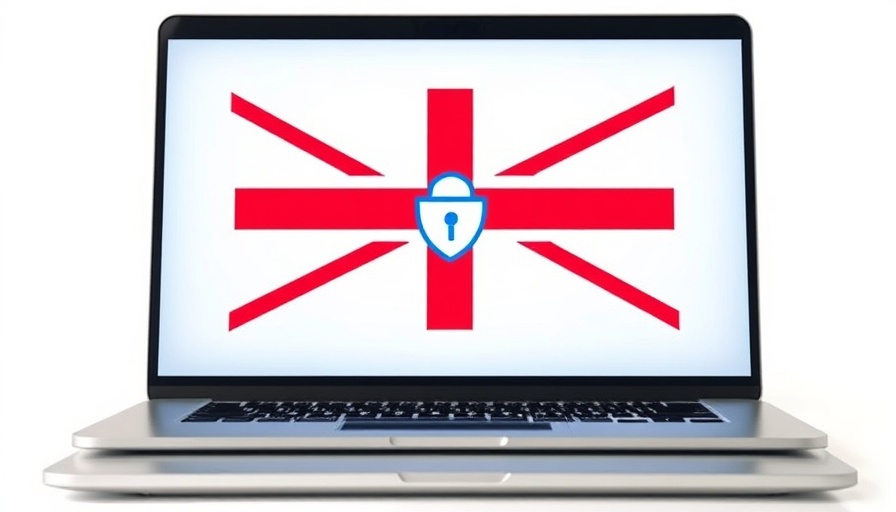
How One Mother Took Action After a Close Call
As more children find themselves glued to screens, a Phoenix mother’s experience serves as a warning for parents everywhere. Wanda Guercio, whose 14-year-old daughter recently had a disturbing encounter on a popular social media app, decided it was time to take action. She highlights the importance of monitoring children's online activities, especially during Internet Safety Month, as technology continues to evolve rapidly, often outpacing adults' ability to guard against its pitfalls.
Understanding the Dangers of Social Media
With platforms like Instagram, Snapchat, and TikTok dominating teen interactions, it's easy for parents to feel overwhelmed. Guercio expressed that the chaos of parenting in this digital age can be daunting. “I never thought I'd have to worry about these things when my daughter went online,” she reflected, emphasizing that the online landscape is fraught with risks, including cyberbullying, inappropriate content, and predatory behaviors.
Key Strategies to Ensure Online Safety
To mitigate these dangers, Guercio implemented several strategies. Among them, open communication is paramount. “I encourage my daughter to talk to me about anything that makes her uncomfortable online,” she said. In addition to discussing online interactions, here are a few actions parents can take:
- Setting up parental controls: Most devices and apps offer settings to limit access to certain content, providing parents with peace of mind.
- Establishing screen time limits: Managing how much time children spend online can reduce exposure to negative experiences.
- Being involved: Regularly checking in on which apps and platforms their children are using and participating in those discussions can make digital worlds less intimidating.
The Emotional Impact of Online Dangers
For parents like Guercio, the emotional toll of worrying about their children's safety online can be profound. “It feels like there’s a constant pressure to keep my daughter safe while also allowing her to have some independence,” she shared. This balancing act is crucial, as children need the autonomy to explore their interests while having a safety net to fall back on should they encounter problems.
Educating Children About Internet Safety
Education plays a vital role in online safety. Experts recommend teaching kids about privacy settings, the significance of not sharing personal information, and recognizing encounters that cross the line. “Kids need to understand that not everyone online has good intentions,” Guercio asserted, underlining the importance of instilling a sense of responsibility among young internet users.
Additional Resources for Parents
Numerous resources exist for parents looking to equip themselves with the tools necessary for fostering a safe online environment. Organizations such as the National Cyber Security Alliance offer valuable insights into best practices for internet safety. Additionally, educational apps designed to teach digital citizenship can also help. Parents can select from a range of tools—from screen time management apps like Qustodio to parental control software like Net Nanny—helping them actively engage in their children's online lives.
Conclusion: Taking Action for a Safer Future
Ultimately, the goal is to create a safe space for children to enjoy the benefits of technology while minimizing risks. Guercio's experience serves as a critical reminder that vigilance, education, and communication are cornerstones to ensuring kids' safety in a rapidly changing digital world. By embracing proactive measures, parents can foster a more secure online experience for their children, allowing them both freedom and safety in their digital lives.
 Add Row
Add Row  Add
Add 




Write A Comment